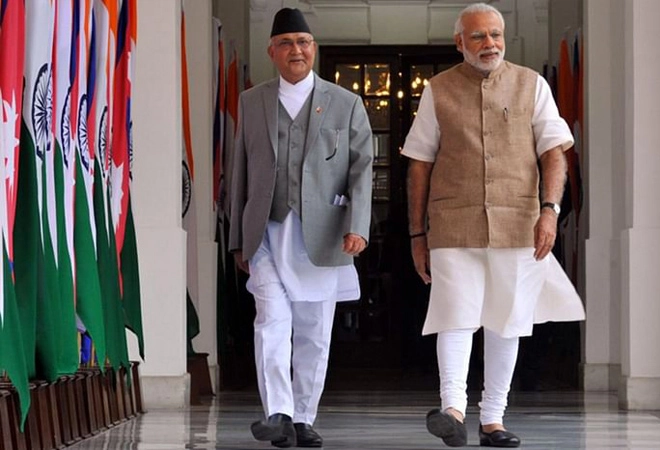In a recent essay published in The Kathmandu Post, China’s departing ambassador to Nepal, HouYanqi, mentioned the forthcoming parliamentary elections and expressed the hope that bilateral relations will “continue to achieve new levels.”
It was clear from Beijing’s overt indication that it wanted to maintain strong bilateral relations irrespective of the outcome. Since China has a lot riding on the election results on November 20, India, Nepal’s other prominent neighbor, agrees.
The influence of Nepal, which is geographically positioned between the two Asian superpowers, has been the subject of a high-stakes power struggle between them. They both want a “friendly” administration in Kathmandu in a few weeks.
However, Nepal’s elections are just some of the ones being watched closely by China and India. The US is similarly interested in the outcome, given its fierce regional competition with China.
The US spent significant diplomatic capital over the past year to ensure Kathmandu agreed to its own $500 million Millennium Challenge Corporation (MCC) agreement that calls for constructing roads and energy infrastructure in Nepal. This was done to counter China’s multi-billion dollar Belt and Road Initiative (BRI) in the Indo-Pacific, which Nepal has endorsed.
Though on the surface, Washington’s State Partnership Programme (SPP) appeared to entail the Nepal Army collaborating with the Utah State National Guard on “humanitarian and disaster management” issues, Kathmandu has been unable to join. However, the SPP has a hidden military purpose and the goal of bringing Nepal on board with the American Indo-Pacific strategy.
Once elections for the 275-member House of Representatives (PratinidhiSabha) and its seven provincial assemblies are complete, New Delhi, Beijing, and Washington will all seek a government in Kathmandu that will protect, if not advance, their strategic interests.
Two erratic electoral coalitions have been established for the time being, with the same old, senile warhorses vying for the position of prime minister. Current Nepali Congress leader SherBahadurDeuba leads one alliance, while former PM K P Sharma Oli of the Communist Party of Nepal-Unified Marxist Leninist leads the other.
Given that Nepalese leaders are motivated more by political expediency and opportunism than by ideology, it is not surprising that Pushpa Kamal Dahal, the leader of the Communist Party of Nepal (Maoist Centre), who was formerly a member of the grand Communist alliance, is now a member of the coalition led by Deuba.
Also Read: A Cruel Birth of Bangladesh – Book Review
Madhav Kumar Nepal, another former prime minister, is also a member of the ruling coalition. After criticizing Oli’s authoritarian behavior, he broke up his relationship with him last year, dividing the CPN-UML. He is presently the leader of Nepal’s newly established Communist Party (Unified Socialist).
A stable Nepali administration that prioritizes its strategic interests is essential for India. However, stability is unlikely to even in the following administration, given the infamy. Nepalese politicians have amassed due to their unquenchable quest for power and the prime ministership.
In addition to causing severe political turmoil within Nepal to ensure his government’s survival, pro-China Oli’s tenure as prime minister caused New Delhi some difficulty. He ferociously incited nationalist feelings, even changing Nepal’s map, sparking a response to the Kalapani territorial dispute with India. As a result, under his leadership, relations between New Delhi and Kathmandu were considerably chilly.
Following Deuba’s appointment as PM in July of last year, who was seen as being pro-India, there was a thaw. Although a coalition administration would make his position shaky as well, New Delhi would likely gamble on Deuba returning to lead the government.
India, which historically regarded Nepal as its backyard because of its connections to civilization and culture and its physical proximity, has seen its influence there fade even as China has made significant gains, luring the nation with its resources and building projects.
Even more, concerning for India is the fact that Beijing has established strong bonds not just with the Communist parties but also with Nepalese leaders who cross party lines. Therefore, the outcome of the election is much more vital for New Delhi.
The fact that the outgoing Chinese envoy publicly attempted to serve as a “peace-maker” to keep the feuding factions of the ruling Nepal Communist Party (NCP) united when Oli was prime minister two years ago provides evidence of the extent to which Chinese influence has permeated Nepal’s political system.
Beijing exerted much effort to bring the Communist parties—the Oli-led CPN-UML and the Dahal-led CPN (Maoist Centre)—together. India is well aware that China will continue its efforts to make sure the Communist-led coalition wins, even though this front collapsed due to the fierce struggle for dominance between Oli and Dahal. New Delhi will be crossing its fingers in the hopes that the new political climate in Kathmandu will be stable and advantageous.

